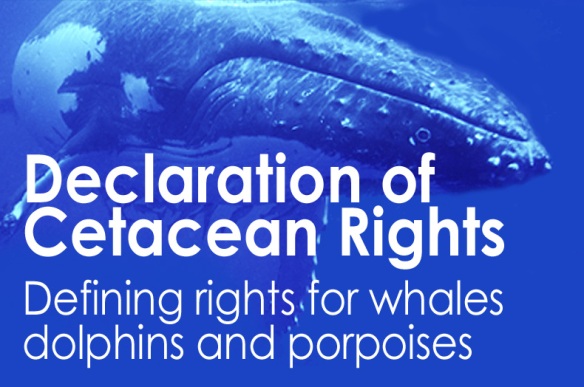UniqueMixture
New member
- Joined
- Mar 5, 2012
- Messages
- 3,004
- MBTI Type
- estj
- Enneagram
- 378
- Instinctual Variant
- sx/so

I was reading an article on a group of scientists, philosophers, and lawyers who came up with a declaration saying cetaceans (dolphins and whales) should be declared non-human persons and should be given rights similar to humans such as not being the property of a corporation and a right to a non-disruption of their natural habitat.
After reading a bit more I discovered this declaration by the Institute for Ethics & Emerging Technologies:
Owing to advances in several fields, including the neurosciences, it is becoming increasingly obvious that the human species no longer can ignore the rights of non-human persons. A number of non-human animals, including the great apes, cetaceans (i.e. dolphins and whales), elephants, and parrots, exhibit characteristics and tendencies consistent with that of a person's traits like self-awareness, intentionality, creativity, symbolic communication, and many others. It is a moral and legal imperative that we now extend the protection of 'human rights' from our species to all beings with those characteristics. The IEET, as a promoter of non-anthropocentric personhood ethics, defends the rights of non-human persons to live in liberty, free from undue confinement, slavery, torture, experimentation, and the threat of unnatural death. Further, the IEET defends the r of non-human persons to live freely in their natural habitats, when that's not possible, to be given the best quality of life an welfare possible in captivity (such as sanctuaries).
Apparently the great apes, dolphins, and elephants share certain elements like spindles in parts of their brains, etc which may be related to cognition.
So, what do you think? Are there such things as non-human persons? What animals/entities should be included in the category? What rights are they entitled to (if any)? What are the legal, social, moral, etc. ramifications?


